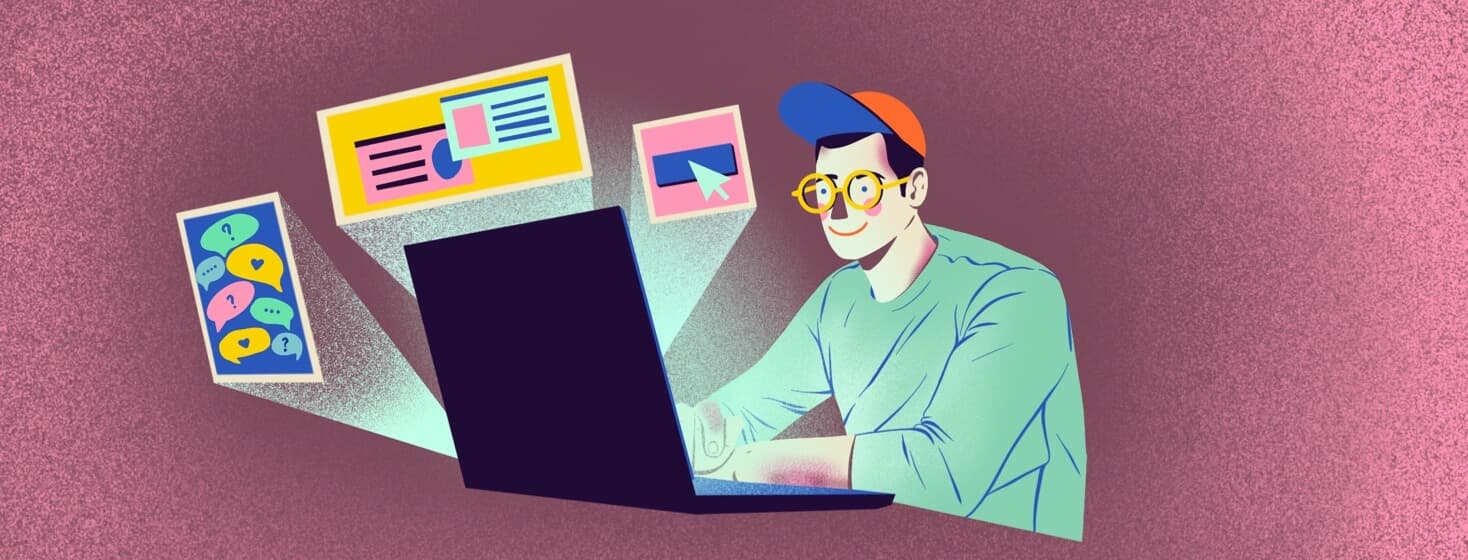Staying Informed on Your Rare Disease for Better Advocacy
Ever since I've been diagnosed with the first of my 3 rare diseases, Ehlers-Danlos syndrome (EDS), I've tried to stay informed. It's been important to me because, as with most rare diseases, many healthcare professionals don't know about it. So, I need to know as much as possible to be my own best advocate!
Becoming your own best rare disease advocate
It's also important to me because I have a website (in French) to raise awareness and share information on my rare diseases, and I have to provide accurate and up-to-date information.
So, I read scientific articles, attend webinars, and attend conferences. I often joke that I would probably get more continuing education credits in a year than most of my doctors!
Attending a virtual conference
Financial barriers
Thanks to the Social Health Network (SHN), I virtually attended the Ehlers-Danlos Society's Global Learning Conference this July. Due to financial issues, I haven't had the opportunity to participate for the past few years.
I need to note how glad I am that it was possible to attend virtually, an option I fight for, as I believe it's an accessibility and equity issue! I couldn't attend in person for multiple reasons. The Ehlers-Danlos Society (like many other organizations) offers financial help to attend, but it usually doesn't cover all the costs. Hotel, food, and travel are only sometimes covered. Additional considerations to attend conferences held during the week, like loss of income or a babysitter, are never covered.
Physical barriers
Attending a conference and traveling can also be quite tricky physically, so I would definitely not be able to attend multiple conferences in person every year.
Health barriers
My main reason not to be there in person, though, is the fact that I'm immunocompromised and at very high risk of death in case I get an infection, and with COVID being prevalent again (and, sadly, with so very few people still taking precautions), I can't risk my health.
Learning the latest about your rare disease
Even attending the conference virtually was quite tiring. We're talking about 5 long days filled with often technical lectures on diagnostics, the condition's mechanisms, available treatments, and physician-patient relationships. My brain is used to the topics and "academia talk," but I can't concentrate for long. Luckily, we could watch sessions later, so I didn't miss anything in the end. I'm so grateful to SHN that I could attend!
I learned a lot and am now up to date on the most recent research and developments in Ehlers-Danlos syndrome. I heard from other people living with my condition, clinicians who work with people like me, and researchers who are interested in learning more and helping us. On the last day, I also heard from people with the rarer forms of Ehlers-Danlos syndrome.
Keeping accessibility in mind
The Ehlers-Danlos Society used a unique app called Whova so everyone could chat together, no matter where they were. It was even a way for the people attending in person to ask questions, so even those who weren't physically in the room could get their questions answered.
I know of many people who were there in person who, since they are chronically ill, couldn't physically attend all the sessions they were interested in. Thanks to the hybrid format, they could attend virtually from their hotel room! That's true accessibility!
I found it meaningful that the event was planned with accessibility in mind. The promo material from the get-go stated that the event would be hybrid, and the association president took a few minutes, multiple times each day, to talk to the people online specifically and answer general questions. It made me feel included and seen.

Join the conversation